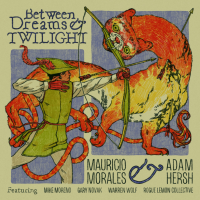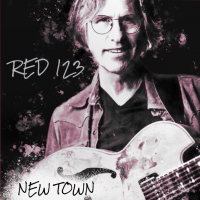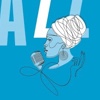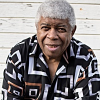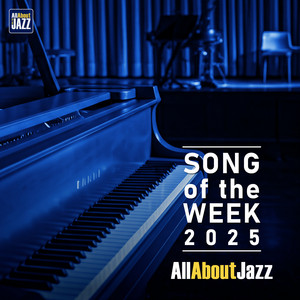Home » Search Center » Results: Clarinet
Results for "Clarinet"
Results for pages tagged "Clarinet"...
Bennie Maupin

Born:
Bennie Maupin is best-known for his atmospheric bass clarinet playing on Miles Davis' classic Bitches Brew album, as well as other Miles Davis recordings such as Big Fun, Jack Johnson, and On the Corner. He was a founding member of Herbie Hancock's seminal band The Headhunters, as well as a performer and composer in Hancock's influential Mwandishi band. Born in 1940, Maupin started playing clarinet, later adding saxophone, flute, and, most notably, the bass clarinet to his formidable arsenal of woodwind instruments. Upon moving to New York in 1962, he freelanced with groups led by Marion Brown, Pharoah Sanders, and Chick Corea, and played regularly with Roy Haynes and Horace Silver
About Michael Marcus
Instrument: Multi-instrumentalist
Results for pages tagged "Clarinet"...
Michael Marcus

Born:
Michael Marcus has been an active member of the New York jazz scene for over twenty five years. In the 1980's and 1990's Michael became a prominent figure on the "free jazz" scene...while always staying connected to the tradition! Since releasing his debut recording as a leader, "Under The Wire" for Enja in 1991, he has continued to be part of the cutting edge in American improvised music, touring the festival and club circuits both in the US and Europe, as well as appearing on over thirty records for Soul Note, Justin' Time, Not Two, Boxholder, CIMP & Qwest/Warner
Results for pages tagged "Clarinet"...
Harlan Leonard

Born:
Harlan Leonard was an American jazz bandleader and clarinetist from Kansas City, Missouri.
Leonard was born in Kansas City in 1905. A professional musician from the age of 17, he joined Benny Moten's orchestra in 1923, where he led the reed section until 1931. In 1931 he and Thamon Hayes formed the Kansas City Skyrockets, which included trumpeters Ed Lewis and James Ross, trombonist Vic Dickenson, and pianist Jesse Stone. After disputes with the Chicago local of the American Federation of Musicians the band broke up.
In 1939 Leonard formed Harlan Leonard and his Rockets, which featured a young Myra Taylor
Results for pages tagged "Clarinet"...
Tim Laughlin
With the beginning of the twenty-first century comes a core of musicians with fresh and imaginative ideas for this timeless American art form known as “jazz”. This is especially true in New Orleans and clarinetist Tim Laughlin is indeed one of these musicians. Tim Laughlin (pronounced Lock-lin) was born and raised in New Orleans, a city constantly re-inventing itself. His style and sound are uniquely his own, contrasting the classic style he grew up listening to and the contemporary influences of many. Atlanta Jazz Party Good Times Jazz Records (Fantasy) was pleased to release one of his latest CDs, “Blue Orleans”, a perfect example of why Laughlin is one of the “cutting edge” musicians whose musical form is always growing and changing
Results for pages tagged "Clarinet"...
John LaPorta

Born:
At one point in time, John LaPorta looked like he was going to be one of the leading clarinetists in modern jazz. His cool tone and very advanced style (influenced by Lennie Tristano) seemed to be making him the Lee Konitz of the clarinet. LaPorta showed great promise as a reedman, particularly for his skills as a bebop and Third Stream clarinetist, but chose to sidestep into the educator's chair. One of his first professional gigs was with Bob Chester's swing band, beginning in 1942. In '44 he joined the Herman aggregation and remained for two years, making his own imprint on what became a classic big- band sound
Results for pages tagged "Clarinet"...
David Krakauer
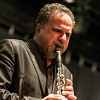
Born:
Only a select few artists have the ability to convey their message to the back row, to galvanize an audience with a visceral power that connects on a universal level. David Krakauer is such an artist. Widely considered one of the greatest clarinetists on the planet, he has been praised internationally as a key innovator in modern klezmer as well as a major voice in classical music. Known simply as “Krakauer” to his fervent following, he is nothing less than an American original who has embarked on a tremendous journey transforming the music of his Eastern European Jewish heritage into something uniquely contemporary
Results for pages tagged "Clarinet"...
Theo Jorgensmann

Born:
Jörgensmann was born in 1948 in the town of Bottrop in the Western Rhur industrial region of Germany. Theo Jörgensmann is one of the most advanced modern free improvisers on his instrument, combining moody chamber jazz with hints of a modal hard bop sensibility. His work with the 'Bottrop Sextet' reveals that he continues to retain great affection for the town where he grew up. In the middle of the sixties he worked as a laboratory technician in a chemical laboratory. He started to play clarinet at the age of 18, taking private lessons from a music teacher at Folkwang Academy of Music in Essen. His dedication to the clarinet as his only instrument was only briefly interrupted during a 15 month spell doing National Service, when he was asked to play soprano saxophone for the Army dance band. After the phase in the German Army, Jörgensmann worked with handicapped children and studied several of semesters social pedagogics and computer science. The distinctive tonal quality of Jörgenmann’s playing owes something to his choice of clarinet. Many of his albums, available on hatOLOGY, were recorded using a straight basset clarinet in Bb, made by Harald Hüyng, a pupil of the great Herbert Wurlitzer. This clarinet, although an Oehler System, would have some essential similarities to that played by Stadler when playing the Mozart Clarinet Concerto in the 1780’s. It has extended keywork to enable an additional D and C at the bottom of its range. In 2008, however, Jörgensmann switched from his basset clarinet in Bb to a Low G clarinet, built by another pupil of Herbert Wurlitzer, Wolfgand Dietz. The special sound of his playing arises from the fact that Jörgensmann blows with less pressing of the teeth. As a result, he can play other phrasing and accents, as it is usually possible on the clarinet. It is thus more closely related with the 'hard bop' saxophonists. Jörgensmann made his first appearance at a major event as a member of the 'Contact Trio' with {{Michael Jüllich=56888}} at the 1972 Frankfurt Jazz Festival. During this period he began working with local musicians. He didn't become a professional musician until 1975. In the early 1970's Jörgensmann played in a Jazz Rock group which included the keyboard player {{Hendrik Schaper}} (later a member of {{Klaus Doldinger=6335}} and {{Udo Lindenberg}}) and the drummer {{Udo Dahmen}}. At this time he used electronic effects pedals, such as fuzz, wah-wah and chorus. Probably he was one of the first clarinetists which electronically distorted their instrument. But by 1975 when he formed the clarinet ensemble, 'Clarinet Contrast', he was interested in the pure acoustic sound of his instrument. 'Clarinet Contrast' included {{Bernd Konrad = 8465}}, {{Hans Kumpf}} and {{Michel Pilz = 10309}} as well as one of the musicians Jörgensmann had most admired when he first began playing clarinet, {{Perry Robinson = 10767}}. In 1975 he also founded his first Quartet, which end of the seventies was one of the most successful jazz bands in Germany. In 1977 the 'Theo Jörgensmann Quartet' performed as German representative at the festival of the European Broadcasting Union in Hilversum, Netherlands. Jörgensmann's exclusive focus on the clarinet has led him to form a succession of partnerships with other clarinet players and because of its commitment to the clarinet he was part of the Renaissance in the jazz and improvised music scene. In 1979 the influential European producer and music journalist, {{Joachim-Ernst Berendt}} helped Jörgensmann call together the members of the 'Clarinet Summit'. This was an all-star clarinet group with soloists: {{John Carter = 5578}}, {{Perry Robinson = 10767}}, Theo Jörgensmann, {{Ernst Ludwig Petrowsky = 10259}} and {{Gianluigi Trovesi = 10909}}. John Carter and Theo Jörgensmann met each other at the Moers Jazz Festival in 1979. There they performed solo and as a duo on three days. {{Eckard Koltermann}} is another clarinetist who Jörgensmann has collaborated with on many occasions. As well as working together as the 'German Clarinet Duo' , in the mid 1980's they were both regular members of the clarinet ensemble CL 4, along with {{Lajos Dudas = 17437}}, {{Dieter Kühr}}, {{Eckard Koltermann}} and {{Gerald Doecke}}. By no means are all Jörgensmann's collaborations with clarinet players. As a young musician Jörgensmann also favoured to work in larger ensembles or duos. So he was member in the big bands of {{Andrea Centazzo= 15428}}, {{Willem van Manen}}, {{ Michael Sell - Composer}} , {{Franz Koglmann= 8447}} and the 'Grubenklangorchester' and he also performed as a duo with pianist John Fischer from US, Dutch guitarist {{Jan Kuiper =56915}}, German pianist {{Bernd Köppen = 56479}}, German poet Oskar Ansull, French bass clarinetist {{Denis Colin= 23580}}, German actor Bernt Hahn, German church organist Hans-Günther Wauer, Swiss pianist Daniel Ott, German performer {{Limpe Fuchs}} and Hungarian pianist {{Karoly Binder = 56718}}, with whom he recorded meanwhile 4 duo CDs. Jörgensmann is active as an improvisation theorist. He is convinced that improvised music is the most modern kind of music, since it has created a completely new kind of musician, an integral musician, who is conductor, composer and performer at the same time. „To find the right balance between communication of motion and non- communication is the major part of improvised music; that communication of motion as a part of interaction in music is an opportunity to create a new structure of time, which the listener could perceive as a new kind of musical space; that the idea of jazz does not depend on a specific material and special form; that the essential aspect of jazz is the fact that jazz musicians discovered the fourth dimension of time in music.“ Together with the musicologist and musician Rolf-Dieter Weyer, Jörgensmann wrote a philosophical book about improvisation "Kleine Ethik der Improvisation". As a lecturer Jörgensmann taught improvisation and clarinet at University of Duisburg between 1983 and 1993. At the same time, he hosted a radio program on jazz at West German Broadcasting. And from 1993 until 1997 he was a lecturer for free improvising at Music Therapeutics Institute of Witten/Herdecke University. Several of his recordings on the HatHut / hatOLOGY label are with the Theo Jörgensmann Quartet which consists of Theo Jörgensmann on clarinet, {{m: Christopher Dell = 40167}} on vibes, {{m: Christian Ramond = 31328}} on double bass and {{Klaus Kugel = 2933}} on drums. The quartet performed with {{Lee Konitz = 8463}} at the Muenster Jazz Festival 1999. Another regular partner has been {{Kent Carter = 11814}}, working together on the 'Theo Jörgensmann Workshop Sextet' ({{Charlie Mariano = 9072}}, {{Petras Vysaiauskas}}, Theo Jörgensmann, {{Karl Berger = 4931}}, {{Klaus Kugel = 2933}}, {{Kent Carter = 11814}}), as well as the 'Vysniauskas - Jorgensmann Quintet': ({{Petras Vysniauskas = 15461}}, Theo Jorgensmann, {{Andreas Willers = 14607}}, {{Kent Carter = 11814}}. {{Klaus Kugel = 2933}}) and the {{m: Riviere Composers' Pool = 103445}}.
Results for pages tagged "Clarinet"...
Dick Johnson

Born:
Dick Johnson, perhaps best known for his long stint as frontman for the Artie Shaw Orchestra. Born and grew up in the Brockton, Mass area as part of a musical family. He got his professional start as a musician during a stint with the U.S. Navy in 1944-1946. Johnson served with the navy band on the USS Pasadena during WWII. He often credited his stint in the Navy for kicking off his career in jazz. After the war, Johnson toured with the big bands of Charlie Spivak and Buddy Morrow. Eventually, after several years on the road, he settled in his hometown of Brockton, Mass. It was there in Brockton where he and close friend, Lou Colombo formed a jazz sextet
Results for pages tagged "Clarinet"...
Peanuts Hucko

Born:
Michael Andrew "Peanuts" Hucko was born in 1918 in Syracuse, NY and moved to New York City in 1939. From 1939 to 1940, He played tenor saxophone with Will Bradley and Joe Marsala. After a brief time with Charlie Spivak, he joined the Glenn Miller Army Air Force Band in which he served in Europe during World War II. During this time, Peanuts (the nickname comes from a childhood love of them) began to concentrate on the clarinet "because we did a lot of marching in sand, which was awkward with the tenor." With Miller's Uptown Hall Gang, he was featured in a hard-driving version of Stealin' Apples.
Results for pages tagged "Clarinet"...
Francois Houle

Clarinetist François Houle has established himself as one of today’s most inventive musicians, in all of the diverse musical spheres he embraces: classical, jazz, new music, improvised music, and world music. Whether he’s performing works by Mozart or Messiaen, appearing as a featured soloist with orchestra, or improvising and embracing live, interactive electronics, François demystifies music for audiences everywhere. Inspired by collaborations with the world’s top musical innovators, François has developed a unique improvisational language, virtuosic and rich with sonic embellishment and technical extensions






